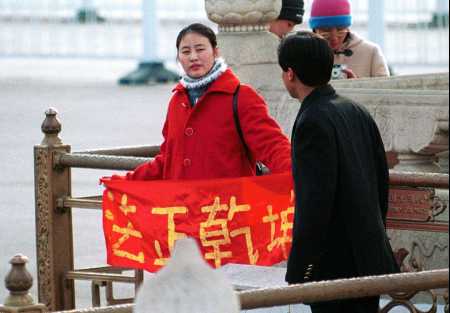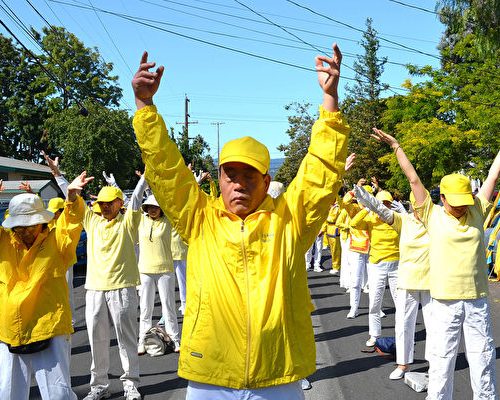In 1999, China was entering a period of unprecedented economic growth. Yet for tens of millions of upstanding Chinese citizens, awaiting them in the 21st century was one of the most harrowing episodes of political terror in modern history.
TOP PHOTO: A Falun Gong practitioner holds up a banner saying “Truthfulness, Compassion, Tolerance” in China. (Minghui.org)
This July 20 marks the 20th year since the Chinese Communist Party (CCP) began its relentless and ongoing campaign against the traditional spiritual practice of Falun Gong. Virtually unrestricted in scope, the repression has since seen countless people jailed, tortured, humiliated, and murdered for their faith. Since 2006, human rights investigators have produced mounting evidence showing that the Chinese regime targets prisoners of conscience, the bulk of them Falun Gong practitioners, to be harvested and killed for their organs.
Though Falun Gong’s plight has gone largely underreported over last two decades, tectonic shifts in the U.S. government’s policies toward China, including a growing ideological dimension to the diplomatic clashes between the two world powers, are driving China’s human rights, in particular the persecution of faith by the CCP, to occupy center stage.
“In China, the government’s intense persecution of many faiths — Falun Gong practitioners, Christians, and Tibetan Buddhists among them — is the norm,” U.S. Secretary of State Mike Pompeo said on June 21.
Earlier, on March 8, U.S. Ambassador for Religious Freedom Sam Brownback singled out the CCP’s crimes of organ harvesting and torture for condemnation. “Data from brave persistent researchers raise concerning questions regarding the organ transplantation system in China, with voluntary donations unable to meet the demand. This is a truly horrifying prospect.”
This article is reprinted from Vision Times.



